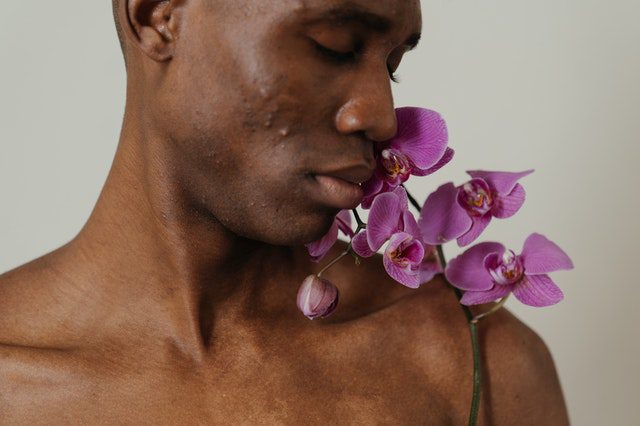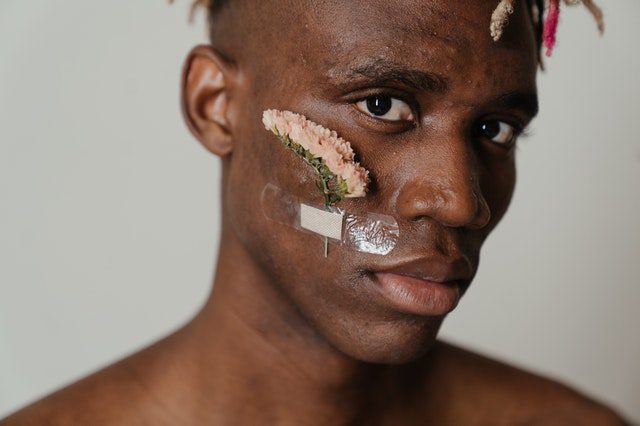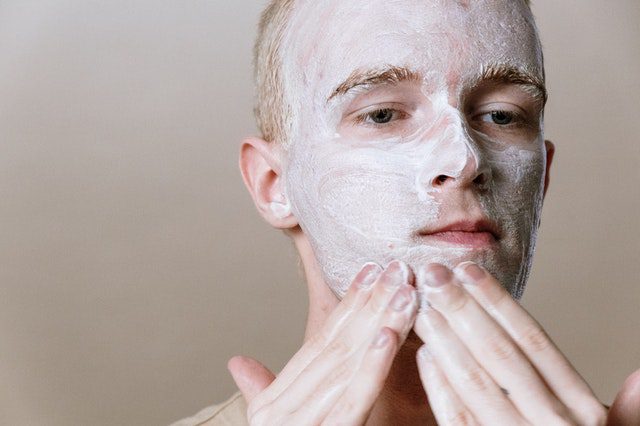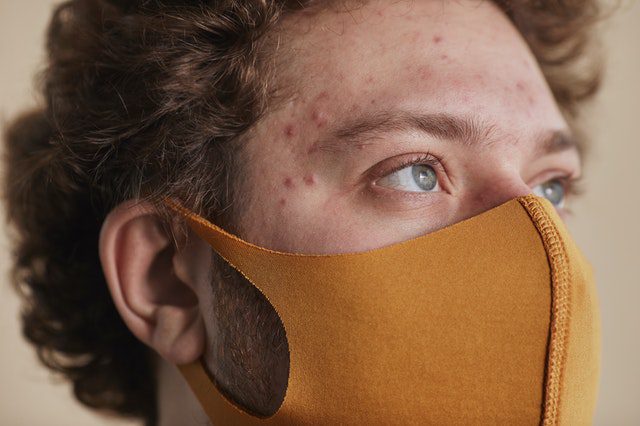
Testosterone Acne Treatment
Beginning with Testosterone Replacement Therapy can be an exhilarating experience. Sometimes, however, it can also cause a sudden breakout of acne that you never had before.
While fighting acne might not be the best part of hormone therapy, it is still worth being excited about because it is a sign that your body is changing. However, there are many different ways of treating acne that might help patients navigate this part of their transition.

Acne Definition
Acne, or Acne Vulgaris, is caused by a build-up of oil and dead skin cells around the hair follicles. While acne develops most often in teenagers and young adults, it can also occur in transgender men undergoing hormone therapy.
Everyone has pores and sebaceous glands (oil glands) in their skin, meant to waterproof and moisturize. Excess sebum (excess oil) in the skin can cause clogged pores, which can lead to pimples or whiteheads. Sometimes the skin in these areas can get painful or inflamed when acne bacteria trigger a response from your body’s white blood cells.
When these pimples or whiteheads form regularly and many at once, they’re called acne breakouts. When a patient has severe acne breakouts, it is often referred to as cystic acne.

Acne Causes
Several things could lead to developing acne and acne breakouts.
Naturally Oily Skin
Some people naturally have more oil production in their skin, leading to acne breakouts. Excess skin oil is also something that could be hereditary.
Diet
It has been found that diet can affect your skin. For example, eating carbohydrate-rich food or food containing many refined carbohydrates can lead to acne.
Stress
While stress may not cause acne that wasn’t there before, it can worsen existing acne.
Over-exfoliation
Scrubbing your face with a gentle exfoliant is essential to remove dead skin cells that lead to pimples or acne. However, because of that, many people scrub too hard or too often, effectively over-exfoliating their skin. It is, in other words, counter-productive as it causes acne instead of preventing it.
Greasy Substances
Oily substances or products coming into contact with a person’s skin can cause acne. For example, many lotions and creams are not fit for use on the face, as they contain too much oil. Additionally, many cosmetic products also contain too much oil, and prolonged use can cause acne breakouts.
Pressure
Constant pressure or friction on your skin from things such as headphones or a helmet can also lead to an acne breakout.
Hormonal Changes
The common hormonal changes during puberty and pregnancy can lead to the development of acne, among other skin changes.
Medication
Certain medications, such as oral contraceptives and anabolic steroids, are famous for causing acne. Additionally, some hormone medication, including those containing testosterone, stimulates sebum production. That can lead to clogged pores and acne on the face and body.

Testosterone Replacement Therapy
Among other factors, testosterone therapy can make a patient develop acne. Increased testosterone levels can trigger excess skin oil production, leading to acne breakouts.
Heightened testosterone levels also cause rapid and increased hair growth across the body. More hair means more ingrown hairs, which may lead to acne problems. Facial hair also requires shaving, which can cause razor bumps, razor burn, rashes, and blocked hair follicles.

Prevent / Treat Acne Breakouts
Luckily, there are many ways of treating acne, and preventing a new acne breakout.
Healthy Habits
While healthy habits might be unable to completely cure acne, especially in the case of Testosterone Replacement Therapy, where hormonal changes cause the acne, it can minimize the symptoms of severe acne or help reduce existing acne while the treatment continues.
Some of these habits include:
Increase Water Intake
While drinking more water won’t necessarily eliminate acne breakouts overnight, it does promote overall health and help your body to rid itself of toxins. That means that your body will be able to fight bacteria more efficiently. In doing so, slowly help decrease your acne. Water also supports your body’s immune function, which would help with the inflammation caused by acne.
Minimize Face Touching
The first tip given by most dermatologists is to avoid touching your face as much as possible. Hands contain natural oils and a lot of bacteria and dirt from everything we touch. Touching your face transfers all of that to your pores and could cause acne or worsen existing acne.
Avoid Fragranced Products
Fragrances in face products such as lotions or serums, or even in hair products like shampoo and conditioner, can clog the pores on your face. Therefore, it is best to avoid such products.
Wear Dermatologist-Approved Sunscreen
The sun’s UV rays can worsen inflammation in the skin, so it is best to limit the time you spend in the sun and invest in a good sunscreen that doesn’t contain too much oil.
Follow A Healthy Diet
Food high in dairy, refined carbohydrates, and sugar can worsen acne, so it is important to limit your intake. Opt instead for healthy grains, fresh fruits, and vegetables. Dark green, leafy vegetables are especially beneficial to your overall health.
Reduce Stress
Stress can make acne worse. Therefore, it is essential to reduce stress as much as you can. Maintain a healthy work-life balance and put effort into the hobbies that you find relaxing.
Face Care
Proper face care plays a vital role in healthy skin and is an excellent way to treat cystic acne.
Face Wash
It is essential to use a face wash that isn’t harsh on the skin cells. Some people opt to use only water to cleanse their faces, and others opt for facial cleansers with limited ingredients, such as Cetaphil.
Medicated Face Wash
In more extreme cases, patients tend to use medicated facial cleansers. It is best to consult your dermatologist about which products would be the best for your skin before purchasing. Still, there are many medicated facial washes available. A medicated face wash includes acne-fighting ingredients.
Examples of a medicated facial wash include:
- Salicylic Acid – clears pores and reduces inflammation
- Glycolic Acid – reduces oil, reduces the size of pores, and helps with hyperpigmentation
- Pantothenic Acid – hydrates, soothes and moisturizes
- Benzoyl Peroxide – exfoliates and reduces bacteria
- Sodium Sulfacetamide – reduces bacteria
- Tea Tree Oil – reduces bacteria and fungi
Chemical Exfoliant
Salicylic Acid and Glycolic Acid are considered chemical exfoliants, as they aid in shedding dead skin cells, unblocking pores, and reducing your body’s production of oil in the skin.
Toner
Facial toners are used after cleansing to reduce the appearance of pores, clean any remaining dirt and oils, restore the skin’s PH balance, and prevent ingrown hairs. In addition, toners can be very helpful in managing, treating, or even preventing acne symptoms.
Moisturizer
Keeping your skin moisturized and hydrated is vital after cleansing to avoid dry skin. Dry skin can cause an overreaction in the sebum skin glands, and more sebum means more acne.
Using a moisturizer that is non-comedogenic, meaning it doesn’t block your pores or contain only natural carrier oils, can help you control acne.
Prescription Acne Treatment
Skin medication should always be discussed with a healthcare professional, and most potent prescription treatments will require a visit to your personal healthcare provider before you can purchase them. These treatments include oral retinoid, topical retinoid, or oral antibiotic treatments.
Accutane
Accutane (or Isotretinoin) is an oral retinoid derived from Vitamin A. It reduces the amount of oil released by your body’s sebaceous glands. Large doses of vitamin A have the same effect. Still, it is crucial never to take Accutane and Vitamin A simultaneously.
Oral Antibiotics
Antibiotics help control acne by minimizing bacteria and inflammation in your skin.
Both Accutane and Antibiotics can help cure acne. Still, they come with some serious side effects, so it is better to discuss these with your healthcare professional before making your decision.
Testosterone Acne FAQs
How long does testosterone acne last?
Unfortunately, acne breakouts caused by testosterone therapy can last for up to six months before improving. It is a slow process. However, it can be managed through the use of prescription treatments and proper face care.



